
Uíge: The Hidden Gem of Angola
Uíge is a city rich in history and culture, nestled in the northern region of Angola. Known for its lush landscapes and vibrant local life, Uíge offers an authentic Angolan experience away from the bustling urban centers. The city is surrounded by dense forests and rolling hills, making it a haven for nature lovers and adventure seekers alike. The local markets in Uíge are a feast for the senses, brimming with colorful produce, handcrafted goods, and the tantalizing aroma of traditional Angolan dishes. The warmth and hospitality of the locals add to the city's charm, making every visitor feel at home. Uíge is also a gateway to exploring the natural beauty of the region, including stunning waterfalls and scenic hiking trails. One of the city's highlights is the rich cultural heritage that can be seen in its architecture, festivals, and daily life. Uíge is a place where tradition and modernity coexist, offering a unique glimpse into the heart of Angola. Whether you're exploring the vibrant streets, savoring local cuisine, or discovering hidden natural wonders, Uíge promises an unforgettable journey.
Local tips in Uíge
- Visit the local markets early in the morning for the freshest produce and unique handicrafts.
- Hire a local guide to explore the nearby forests and waterfalls for an authentic experience.
- Try traditional Angolan dishes like funge and muamba de galinha at local eateries.
- Respect local customs and traditions, especially when visiting rural areas.
- Carry cash as credit card facilities might not be available in smaller shops and markets.
Uíge: The Hidden Gem of Angola
Uíge is a city rich in history and culture, nestled in the northern region of Angola. Known for its lush landscapes and vibrant local life, Uíge offers an authentic Angolan experience away from the bustling urban centers. The city is surrounded by dense forests and rolling hills, making it a haven for nature lovers and adventure seekers alike. The local markets in Uíge are a feast for the senses, brimming with colorful produce, handcrafted goods, and the tantalizing aroma of traditional Angolan dishes. The warmth and hospitality of the locals add to the city's charm, making every visitor feel at home. Uíge is also a gateway to exploring the natural beauty of the region, including stunning waterfalls and scenic hiking trails. One of the city's highlights is the rich cultural heritage that can be seen in its architecture, festivals, and daily life. Uíge is a place where tradition and modernity coexist, offering a unique glimpse into the heart of Angola. Whether you're exploring the vibrant streets, savoring local cuisine, or discovering hidden natural wonders, Uíge promises an unforgettable journey.
When is the best time to go to Uíge?
Iconic landmarks you can’t miss
Fortaleza de São Miguel
Explore Luanda's Fortaleza de São Miguel: A 16th-century fortress with panoramic views, rich history, and the Museum of the Armed Forces.
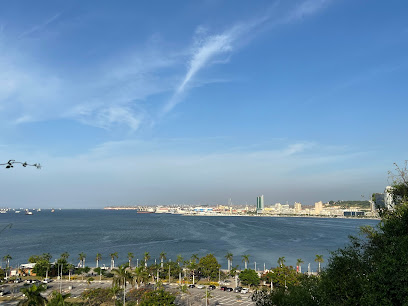
Parque Nacional do Quicama
Explore the stunning landscapes and diverse wildlife of Parque Nacional do Quicama, an iconic national park in Angola rich in natural beauty.
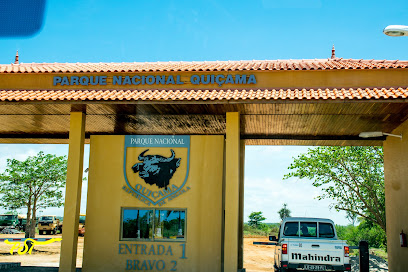
Viewpoint of the Moon
Discover the otherworldly beauty of Miradouro da Lua in Belas, Angola – a lunar landscape on Earth offering breathtaking panoramic views.
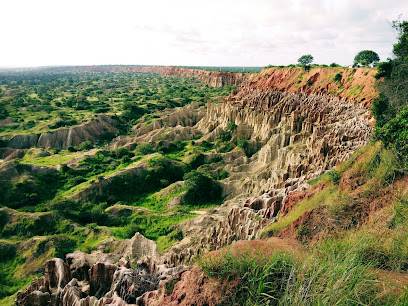
Calandula Falls
Experience the awe-inspiring beauty of Calandula Falls, a spectacular natural gem in Angola, perfect for adventure seekers and nature lovers alike.
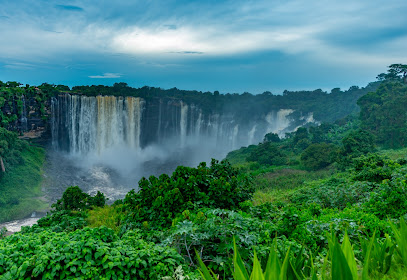
Tundavala Gap
Explore the breathtaking beauty of Tundavala Gap in Angola, a stunning nature attraction offering unforgettable views and adventure for every traveler.
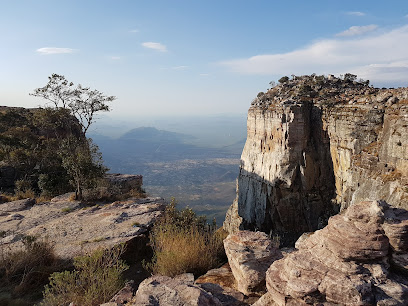
Christ the King Statue
Experience the awe-inspiring Christ the King Statue in Lubango, Angola – a symbol of hope with breathtaking views and rich cultural significance.
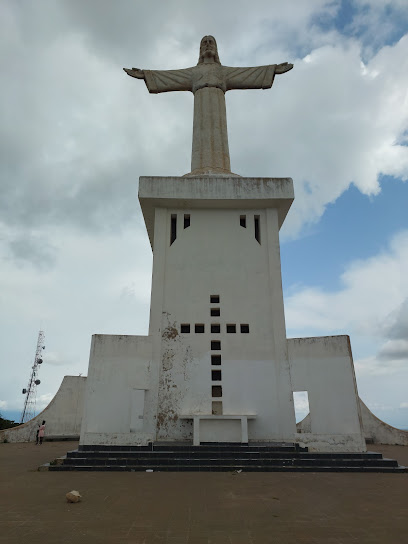
iu Hotel Uíge
Experience modern comfort and warm Angolan hospitality at IU Hotel Uíge, your perfect retreat for exploring the vibrant culture and landscapes of Angola.
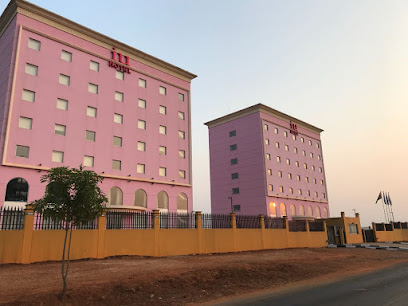
Aeroportul Uíge
Discover the beauty of Angola from Aeroportul Uíge, your gateway to nature, culture, and adventure in the heart of Africa.
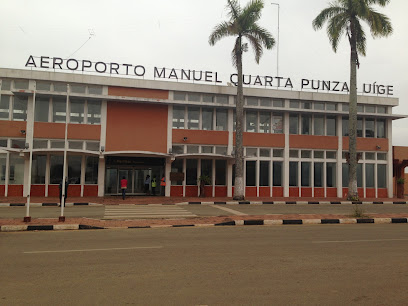
Antiga casa do Uíge
Explore the cultural richness of Antiga casa do Uíge, a heritage building that tells the story of Angola's vibrant history and architectural beauty.
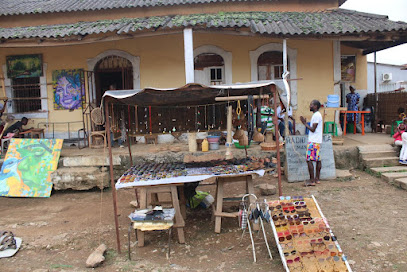
Fortress of Muxima
Explore the historic Fortress of Muxima, a cultural landmark in Angola with stunning views and rich colonial history, perfect for history enthusiasts and nature lovers.

Serra do Uige
Discover Serra do Uige, Angola: Breathtaking views, diverse wildlife, and thrilling trekking adventures await in this pristine mountain paradise.

Unmissable attractions to see
Parque Nacional do Quicama
Explore the breathtaking landscapes and diverse wildlife of Parque Nacional do Quicama, a premier national park in Angola, perfect for nature lovers and adventurers.
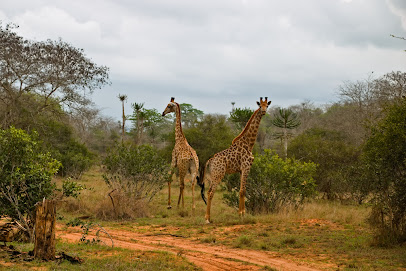
Calandula Falls
Experience the majestic Calandula Falls in Angola, one of Africa's largest waterfalls, offering breathtaking views and a rich natural landscape.
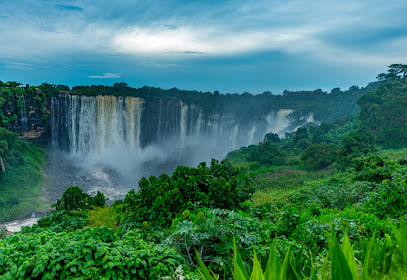
Tundavala Gap
Discover the breathtaking Tundavala Gap in Angola: panoramic views, dramatic cliffs, and a geological wonder on the Serra da Leba escarpment near Lubango.
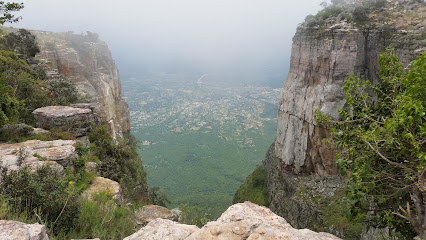
Christ the King Statue
A towering monument of faith in Lubango, offering panoramic views and a glimpse into Angola's history and cultural heritage.
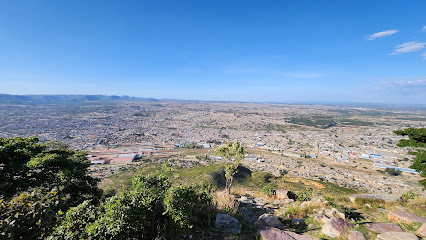
Our Lady Of Senhora De Monte Park
Discover spiritual solace and panoramic views at Our Lady of Senhora de Monte Park in Lubango, a serene escape for reflection and natural beauty.
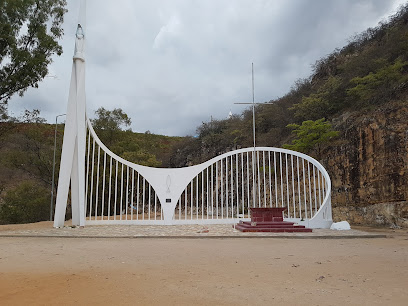
Parque Nacional da Cameia
Discover Angola's hidden gem: a vast, diverse national park offering a raw African wilderness experience and a chance to reconnect with nature.
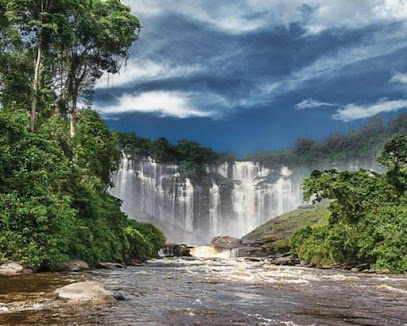
Baia Azul
Discover Baia Azul, Benguela's stunning coastal gem: azure waters, serene beaches, and breathtaking natural beauty await!
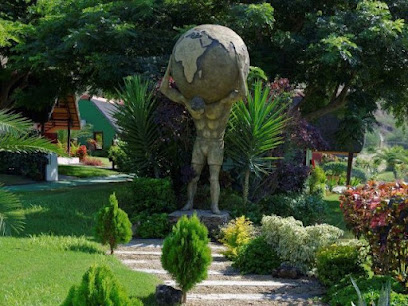
Mupa National park
Discover Angola's hidden gem: Mupa National Park, a vast and diverse landscape teeming with wildlife and natural beauty.
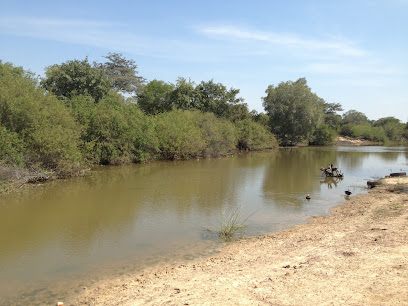
Praia da Caotinha
Discover Praia da Caotinha, a hidden gem in Benguela, Angola, with crystal-clear waters, stunning rock formations, and serene beauty.
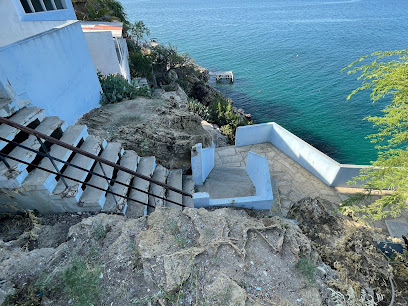
EXPO HUILA
Discover Angola's economic potential at EXPO HUILA, a hub for agriculture, industry, and tourism in Lubango.

Essential places to dine
O Madeirense Cidade
Experience authentic Portuguese flavors in Luanda at O Madeirense Cidade - where every meal tells a story.
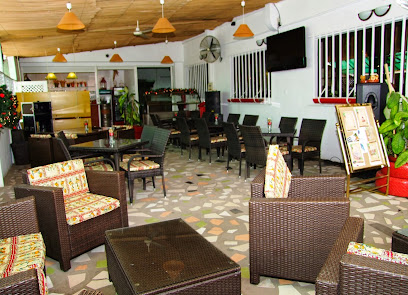
Restaurante la Vigia
Discover exquisite seafood dining at Restaurante la Vigia in Luanda - where Angolan flavors meet exceptional service.
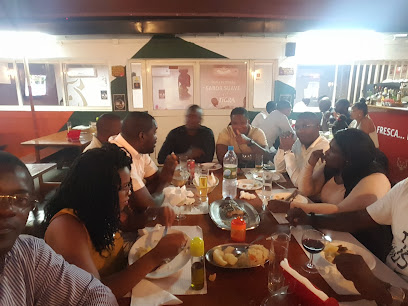
Espaço Luanda
Explore the rich flavors and vibrant atmosphere at Espaço Luanda, where traditional Angolan cuisine meets modern dining elegance.
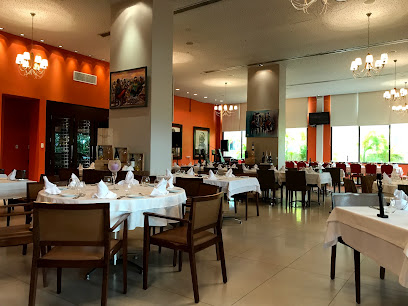
Restaurante Madeirense Mar
Discover authentic Angolan cuisine at Restaurante Madeirense Mar in Luanda – where tradition meets flavor in every bite.
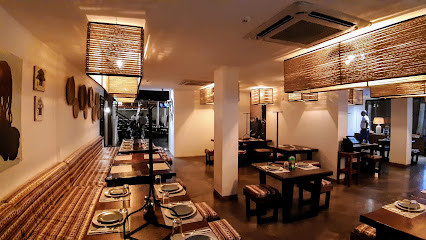
Taverna do Morro
Experience authentic Angolan cuisine at Taverna do Morro—where tradition meets flavor in a welcoming atmosphere.
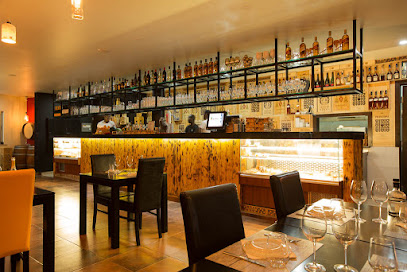
Lookal Beach Club
Discover unparalleled luxury at Lookal Beach Club in Luanda - where exquisite dining meets stunning ocean views.
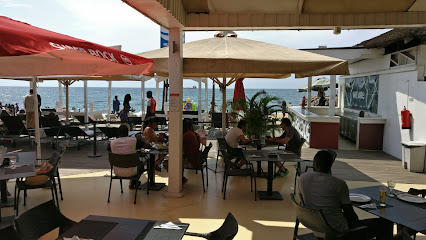
Malibu Beach Club
Discover the rich flavors of Angola at Malibu Beach Club – where culinary tradition meets modern dining in Luanda.
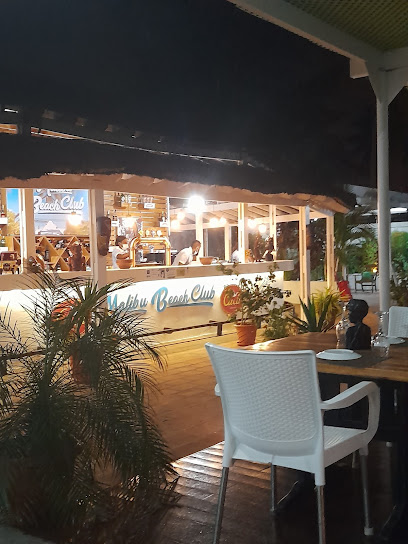
Cozy café
Discover the delightful brunch offerings at Cozy Café in Luanda - where local flavors meet cozy charm.
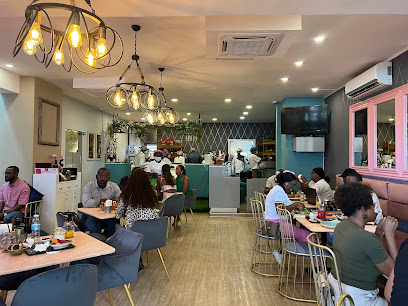
Toro na Brasa
Experience the best grilled steaks at Toro na Brasa in Belas - a culinary gem showcasing traditional Angolan flavors.
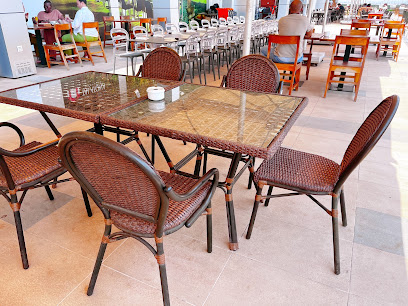
Restaurante ALVALADE 61
Discover the flavors of Angola at Restaurante ALVALADE 61—where traditional meets contemporary in every bite.
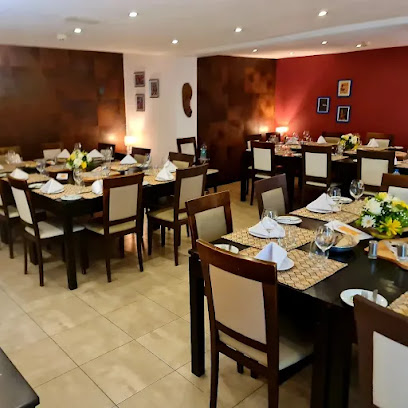
Restaurante Bico do Sapato
Experience authentic Angolan flavors at Restaurante Bico do Sapato in Luanda - where tradition meets modern culinary artistry.
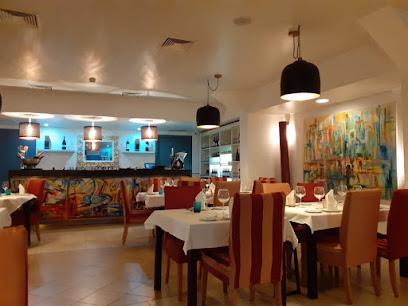
Pastelaria Pinguim
Discover the sweet side of Uíge at Pastelaria Pinguim – your go-to spot for delicious pastries and local delicacies.
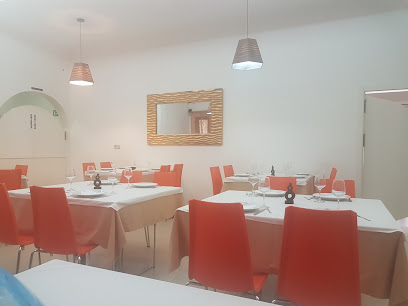
Le Petit Caffe
Discover authentic Angolan cuisine at Le Petit Caffe, where every dish tells a story of local flavors and culinary artistry.
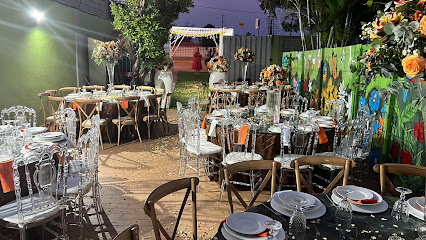
FLOR DO DUKE by CHEF HELT ARAÚJO
Experience the fusion of Angolan flavors and global cuisine at Flor do Duke by Chef Helt Araújo in Luanda.
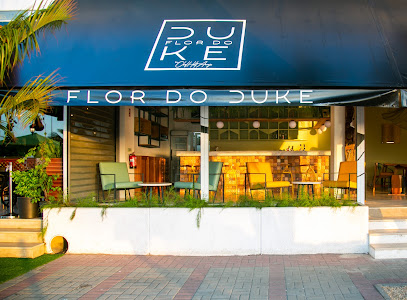
A Biológica
Experience the best breakfast at A Biológica in Luanda, where local flavors meet fresh ingredients in a cozy atmosphere.
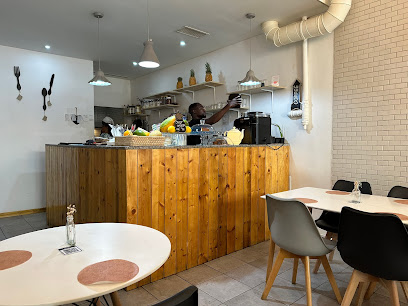
Markets, malls and hidden boutiques
Nosso Super
Explore the vibrant shopping experience at Nosso Super in Uíge, where local flavors meet competitive prices.
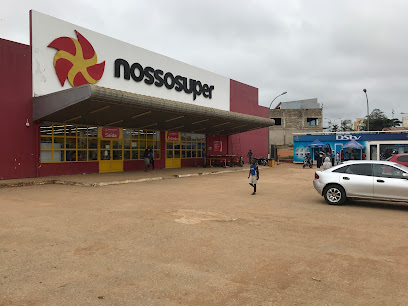
MiniCompras-LOJA
Experience the heart of Uíge at MiniCompras-LOJA, a vibrant grocery store showcasing local flavors and unique Angolan products.

Ponto final
Discover a wide selection of local and international beverages at Ponto Final in Uíge, the perfect stop for every traveler seeking to savor Angolan flavors.
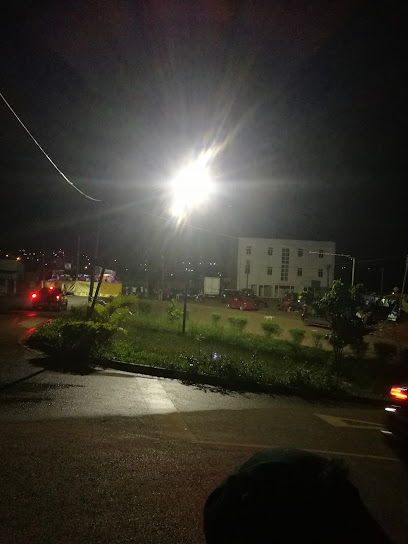
Equivalenza Uige
Discover unique fragrances and indulge in a sensory shopping experience at Equivalenza Uíge, where every scent tells a story.
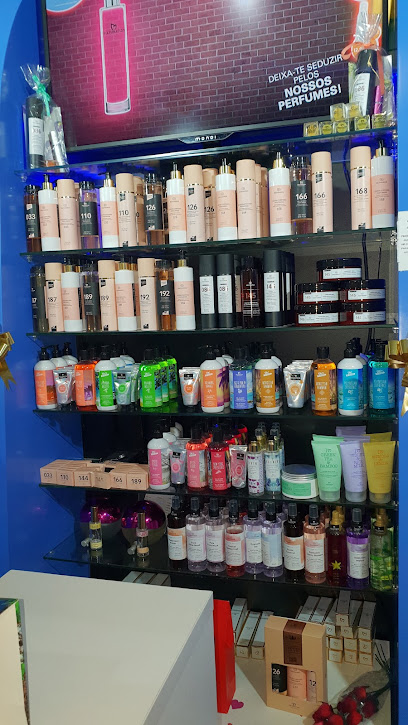
Makungu Comercial
Explore unique Angolan fashion at Makungu Comercial, a must-visit clothing store in the heart of Uíge, offering a vibrant selection for all styles.
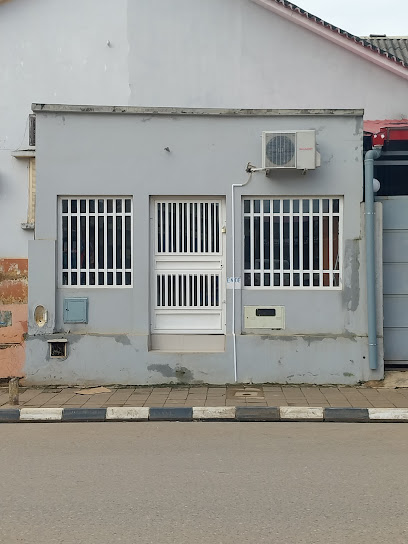
Victoria da fé
Discover the vibrant essence of Uige at Victoria da Fé, a cultural store showcasing local crafts, textiles, and the spirit of Angola.

PEP Angola Uige
Explore the diverse fashion at PEP Angola Uige, where style meets affordability for the whole family.

Nossa Fragrância
Immerse yourself in the exquisite world of scents at Nossa Fragrância, Uíge's premier perfume store offering unique fragrances inspired by local culture.
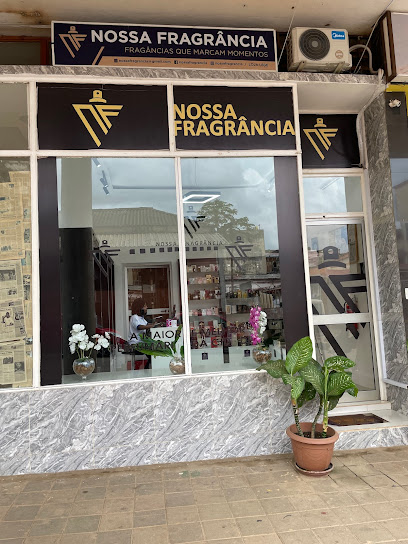
MIGRA, LDA
Explore the elegance of Uíge at MIGRA, LDA, your destination for exquisite couture and personalized fashion experiences.
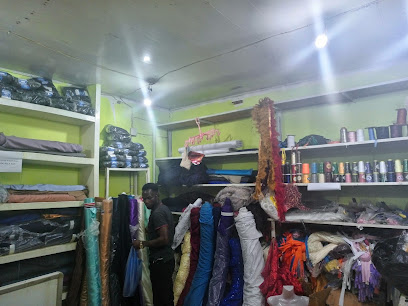
Albecosta comercial
Explore Albecosta Comercial in Uíge: A vibrant shopping mall offering a blend of local and international shopping, dining, and entertainment.

Stara
Discover Stara in Uíge, your go-to shoe store for style, comfort, and quality footwear that complements your travel adventures.

BF Styler
Discover unique Angolan fashion at BF Styler, a trendy clothing store in Mbemba ngango, Uíge, showcasing local styles and vibrant designs.
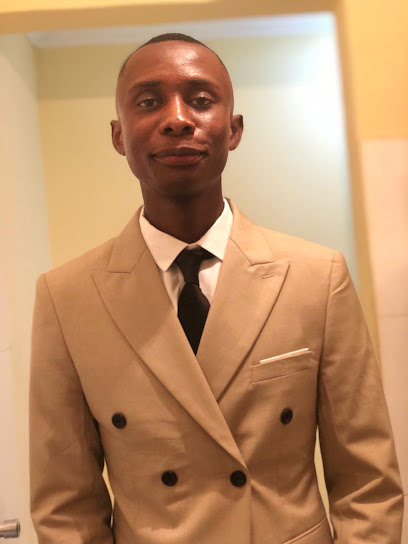
Fragrância Mix
Discover the enchanting world of fragrances at Fragrância Mix in Uíge, where local craftsmanship meets exquisite scent.

Malianos
Explore Malianos, Uíge's vibrant shopping mall, offering local and international brands along with delightful dining options for every traveler.

EP
Explore the vibrant culture and stunning landscapes of Uige, a hidden gem in Angola offering unique shopping, delicious cuisine, and rich traditions.

Essential bars & hidden hideouts
BAR BAR
Experience the lively atmosphere and delightful drinks at Bar Bar, Luanda's premier nightlife destination for locals and tourists alike.
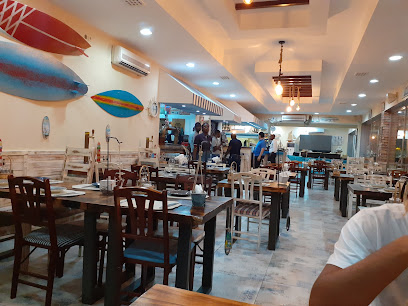
Heritage Lounge Bar
Discover the heart of Luanda's nightlife at Heritage Lounge Bar, where signature cocktails and lively disco beats create an unforgettable experience.
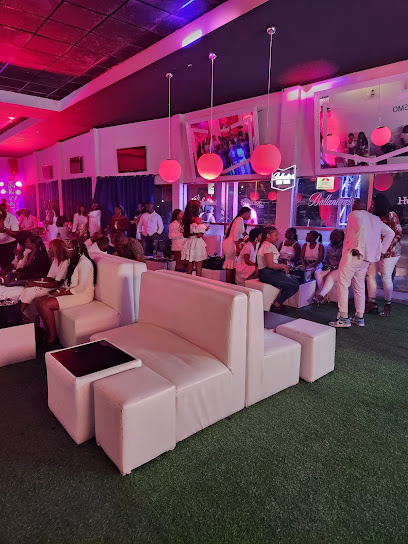
Tudilu Royal Lounge & Bar
Discover the vibrant elegance of Tudilu Royal Lounge & Bar, where exquisite cocktails and local culture collide in Luanda's nightlife.
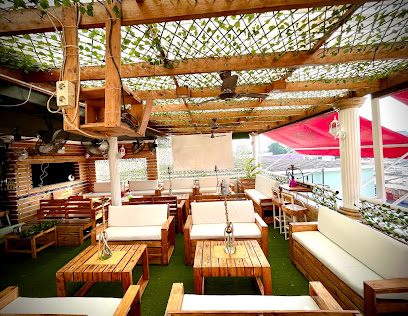
Update Grupo
Discover the vibrant Update Grupo in Luanda, a cocktail bar and musical club offering delightful drinks, fast food, and a lively atmosphere for memorable nights.
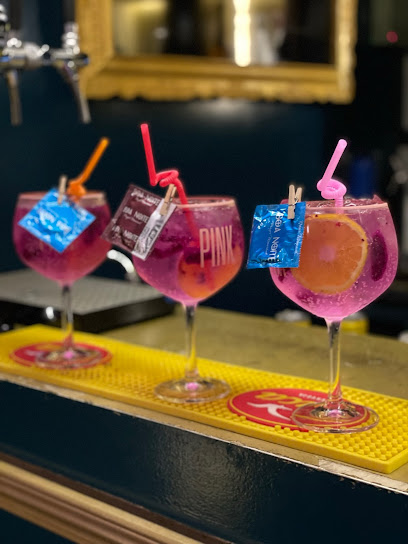
Restaurante Switch
Discover the perfect blend of exquisite dining and vibrant nightlife at Restaurante Switch in Luanda.
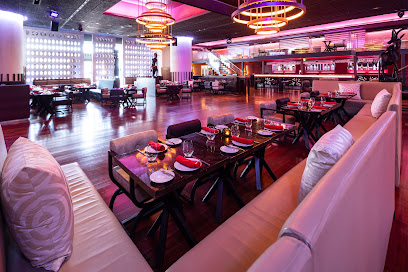
Uspot Pub & Lounge
Discover the vibrant dining scene at Uspot Pub & Lounge in Benguela, where local flavors and lively entertainment come together for an unforgettable experience.
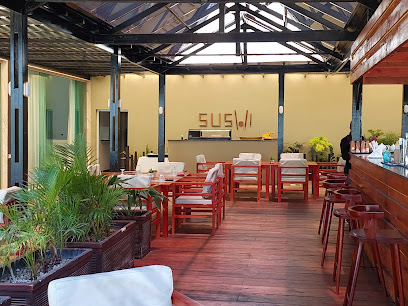
UMBAR_Luanda
Discover the vibrant nightlife of Luanda at UMBAR_Luanda, where culture meets cocktails in an unforgettable atmosphere.
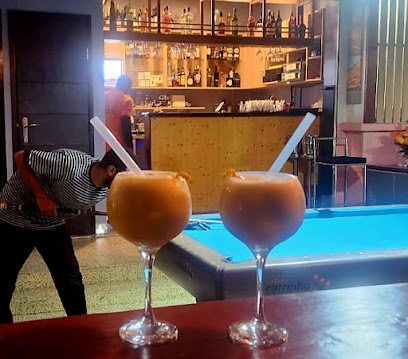
EUFORICOS BAR LOUNGE
Experience the vibrant nightlife at EUFORICOS BAR LOUNGE in Luanda, offering creative cocktails and a cozy ambiance perfect for relaxation.
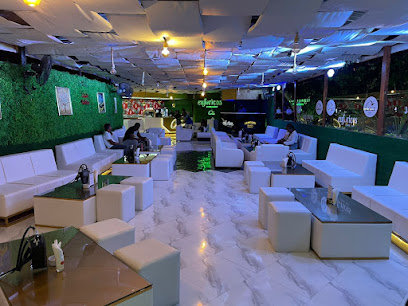
Boteco da titi
Discover the vibrant nightlife of Uige at Boteco da Titi, where local drinks and a lively atmosphere await.
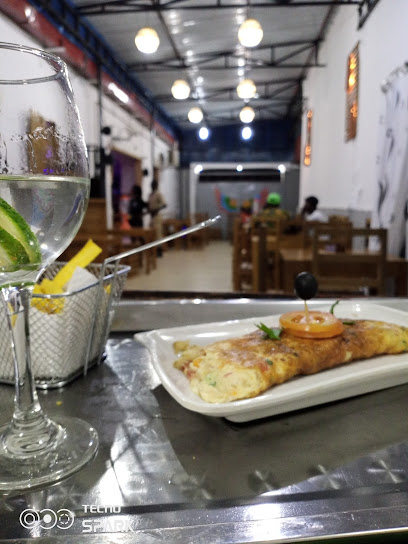
Bar Plaza
Experience the vibrant flavors of Uíge at Bar Plaza, a grill restaurant where local culture meets culinary excellence.
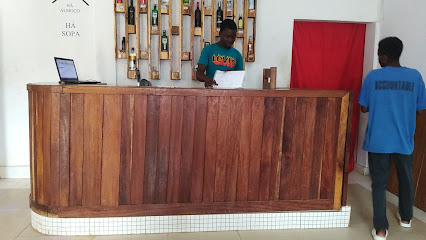
. Rua comandanti Bula
Experience the authentic flavors of Angola at Rua Comandanti Bula, the culinary jewel of Uige, where tradition meets taste.
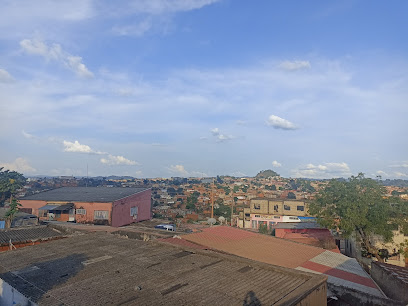
Tailor Bar Luanda
Experience Luanda's vibrant nightlife at Tailor Bar, where delicious drinks and a lively atmosphere await.
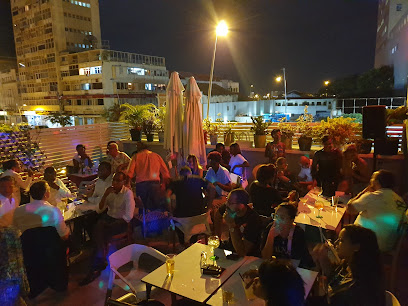
Bar dos Reis
Discover the vibrant nightlife of Uíge at Bar dos Reis, where local culture meets a lively atmosphere and refreshing drinks.

Black House Bar e Hamburgueria
Discover the vibrant tastes of Uíge at Black House Bar e Hamburgueria, where delicious hamburgers and a welcoming atmosphere await.
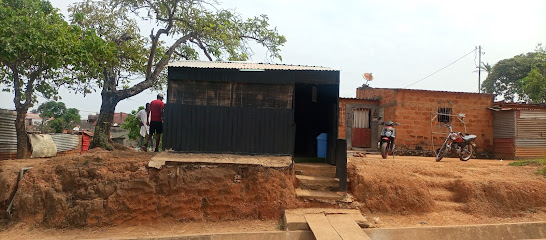
Local Phrases
-
- HelloOlá
[oh-lah] - GoodbyeTchau
[chow] - YesSim
[seem] - NoNão
[now] - Please/You're welcomePor favor
[por fah-vor] - Thank youObrigado
[oh-bree-gah-doh] - Excuse me/SorryCom licença
[kohm lee-sen-sah] - How are you?Como está?
[koh-moh es-tah] - Fine. And you?Bem. E você?
[bem. eh voh-seh] - Do you speak English?Você fala inglês?
[voh-seh fah-lah een-glehsh] - I don't understandNão entendo
[now een-ten-doh]
- HelloOlá
-
- I'd like to see the menu, pleaseGostaria de ver o menu, por favor
[goh-stah-ree-ah deh vehr ooh men-oo, poor fah-vor] - I don't eat meatNão como carne
[now koh-moh kahr-neh] - Cheers!Saúde!
[sow-deh] - I would like to pay, pleaseGostaria de pagar, por favor
[goh-stah-ree-ah deh pah-gahr, poor fah-vor]
- I'd like to see the menu, pleaseGostaria de ver o menu, por favor
-
- Help!Ajuda!
[ah-joo-dah] - Go away!Vá embora!
[vah ehm-boh-rah] - Call the Police!Chame a polícia!
[shah-meh ah poh-lee-see-ah] - Call a doctor!Chame um médico!
[shah-meh oom meh-dee-koo] - I'm lostEstou perdido
[es-toh pehr-dee-doo] - I'm illEstou doente
[es-toh doo-ehn-teh]
- Help!Ajuda!
-
- I'd like to buy...Gostaria de comprar...
[goh-stah-ree-ah deh kohm-prahr] - I'm just lookingEstou só a ver
[es-toh soh ah vehr] - How much is it?Quanto custa?
[kwahn-toh koos-tah] - That's too expensiveIsso é muito caro
[ee-soh eh mwee-toh kah-roo] - Can you lower the price?Pode baixar o preço?
[poh-deh by-shahr ooh preh-soh]
- I'd like to buy...Gostaria de comprar...
-
- What time is it?Que horas são?
[keh oh-rahss sow] - It's one o'clockÉ uma hora
[eh oo-mah oh-rah] - Half past (10)Meia hora (10)
[may-ah oh-rah (dee-ahss)] - MorningManhã
[mahn-yah] - AfternoonTarde
[tahr-deh] - EveningNoite
[noy-teh] - YesterdayOntem
[ohn-tehm] - TodayHoje
[oh-zheh] - TomorrowAmanhã
[ah-mahn-yah] - 1Um
[oom] - 2Dois
[doh-ees] - 3Três
[trehs] - 4Quatro
[kwah-troh] - 5Cinco
[seen-koh] - 6Seis
[sayss] - 7Sete
[seh-teh] - 8Oito
[oy-toh] - 9Nove
[noh-veh] - 10Dez
[dehss]
- What time is it?Que horas são?
-
- Where's a/the...?Onde está o/a...?
[ohn-deh es-tah ooh/ah] - What's the address?Qual é o endereço?
[kwahl eh ooh ehn-deh-reh-soh] - Can you show me (on the map)?Pode me mostrar (no mapa)?
[poh-deh meh moh-strahr (noh mah-pah)] - When's the next (bus)?Quando é o próximo (autocarro)?
[kwahn-doh eh ooh proh-sshee-moh (ow-toh-kah-roo)] - A ticket (to ....)Um bilhete (para ...)
[oom beel-yeh-teh (pah-rah)]
- Where's a/the...?Onde está o/a...?
History of Uíge
-
Uíge was once part of the powerful Kingdom of Kongo, which flourished from the 14th to the 19th century. The kingdom was a major trading hub, dealing in ivory, copper, and slaves. The Kongo Kingdom's influence extended across what is now northern Angola, and its capital, Mbanza Kongo, was a bustling city-state. The region's history is deeply intertwined with the cultural and political developments of the Kongo Kingdom.
-
In the late 15th century, Portuguese explorers arrived in the region, marking the beginning of European influence in Uíge. The Portuguese established trade relations with the Kingdom of Kongo and later sought to extend their control over the region. This led to centuries of conflict and cooperation between the Portuguese and local kingdoms. The colonization period significantly impacted the social and economic structures of Uíge.
-
Uíge played a critical role in the transatlantic slave trade. The region's inhabitants were often captured and sold into slavery, with many being transported to the Americas. The slave trade had a devastating effect on the local population, leading to significant social upheaval and depopulation. The remnants of this dark period can still be felt in the cultural memory of the region.
-
Uíge was an important center for the Angolan independence movement in the mid-20th century. The Movimento Popular de Libertação de Angola (MPLA) and other liberation groups operated in the region, using it as a base for their guerrilla warfare against Portuguese colonial forces. The struggle for independence was marked by intense conflict and significant loss of life, but it ultimately led to Angola gaining independence in 1975.
-
Following independence, Angola plunged into a prolonged civil war that lasted from 1975 to 2002. Uíge was heavily affected by the conflict, with various factions vying for control of the region. The war caused widespread destruction and displacement, leaving a lasting impact on the local population. The end of the civil war brought a period of reconstruction and healing, but the scars of the conflict remain visible.
-
Uíge is known for its rich cultural heritage, which includes traditional music, dance, and crafts. The region is home to various ethnic groups, each with its own unique customs and traditions. The Bakongo people, in particular, have a strong cultural presence in Uíge. Visitors can experience the vibrant local culture through festivals, markets, and community events that showcase the region's diverse heritage.
-
Uíge is renowned for its stunning natural landscapes, including lush forests, waterfalls, and mountains. The region's biodiversity makes it a prime destination for ecotourism. Visitors can explore the scenic beauty of places like the Cangandala National Park and the Bombo-Lumene National Park. The natural environment of Uíge offers opportunities for hiking, bird-watching, and experiencing the tranquility of Angola's wilderness.
Uíge Essentials
-
Uíge is located in the northern part of Angola. The nearest international airport is Quatro de Fevereiro Airport in Luanda, approximately 320 kilometers away. From Luanda, you can take a domestic flight to Uíge Airport, which is around 6 kilometers from the city center. Alternatively, you can travel by bus or taxi from Luanda to Uíge, a journey that typically takes around 5 to 6 hours by road. Ensure to check the road conditions and travel advisories before embarking on the journey.
-
Uíge is a relatively small city, and many of its attractions are within walking distance. For longer trips, local taxis are readily available and relatively inexpensive. Public buses and minibuses operate within the city and connect to nearby villages. Renting a car can also be a convenient option for exploring the surrounding areas at your own pace. However, be aware that road conditions can vary, and driving standards may differ from what you are used to.
-
The official currency in Angola is the Angolan Kwanza (AOA). Credit cards are accepted in some hotels, restaurants, and shops in Uíge, but it is advisable to carry cash, especially in smaller establishments and rural areas. ATMs are available in Uíge, but it is wise to withdraw sufficient cash in Luanda before traveling to ensure you have enough funds. Currency exchange services are available at banks and authorized exchange offices.
-
Uíge is generally a safe destination for tourists, but like any travel destination, it is advisable to take standard precautions. Avoid walking alone at night in unfamiliar areas and keep an eye on your belongings in crowded places. Be cautious in areas with high crime rates, such as the outskirts of the city and less populated neighborhoods. It is always best to stay vigilant and aware of your surroundings.
-
In case of emergency, dial 113 for police assistance and 112 for medical emergencies. The local police station and medical facilities are available in Uíge. It is recommended to have travel insurance that covers medical emergencies. For minor health issues, there are pharmacies in the city where you can purchase over-the-counter medications. Keep a list of emergency contacts and your insurance details handy.
-
Fashion: Do dress modestly, especially when visiting religious sites. Avoid wearing revealing clothing. Religion: Do respect local customs and traditions. Be mindful when taking photographs in or around religious sites. Public Transport: Do be respectful and give up your seat to elderly passengers. Public transport can be crowded, so be patient. Greetings: Do greet people with a handshake. A friendly smile and a few words in Portuguese can go a long way. Eating & Drinking: Do try local delicacies and accept food offerings graciously. Don’t refuse hospitality, as it is considered impolite.
-
To experience Uíge like a local, visit the local markets where you can buy fresh produce and traditional Angolan goods. Engage with locals, as they are often friendly and willing to share stories about the city's history and culture. Don’t miss visiting the Uíge Cathedral and the historical site of the Battle of Ambuila. For a unique experience, explore the beautiful landscapes and waterfalls in the surrounding areas.
Nearby Cities to Uíge
-
Things To Do in Luanda
-
Things To Do in Cabinda
-
Things To Do in Lambaréné
-
Things To Do in Libreville
-
Things To Do in Bitam
-
Things To Do in Mbini
-
Things To Do in Ongwediva
-
Things To Do in Oshakati
-
Things To Do in Ebolowa
-
Things To Do in Angolares
-
Things To Do in Ribeira Afonso
-
Things To Do in Sao Tome City
-
Things To Do in Trindade
-
Things To Do in Kribi
-
Things To Do in Rundu




